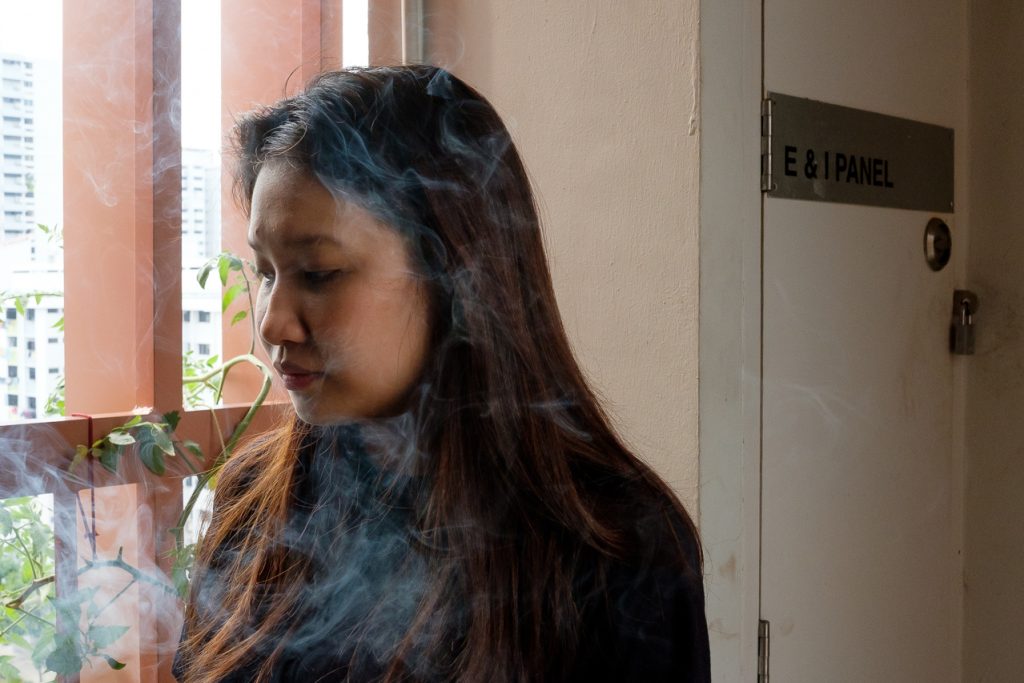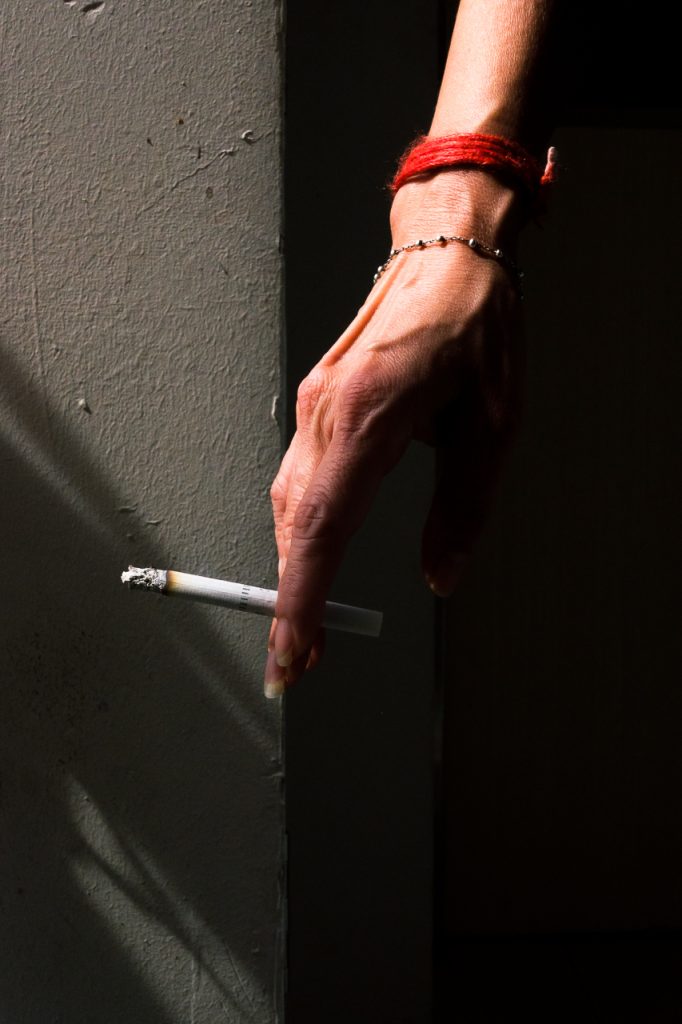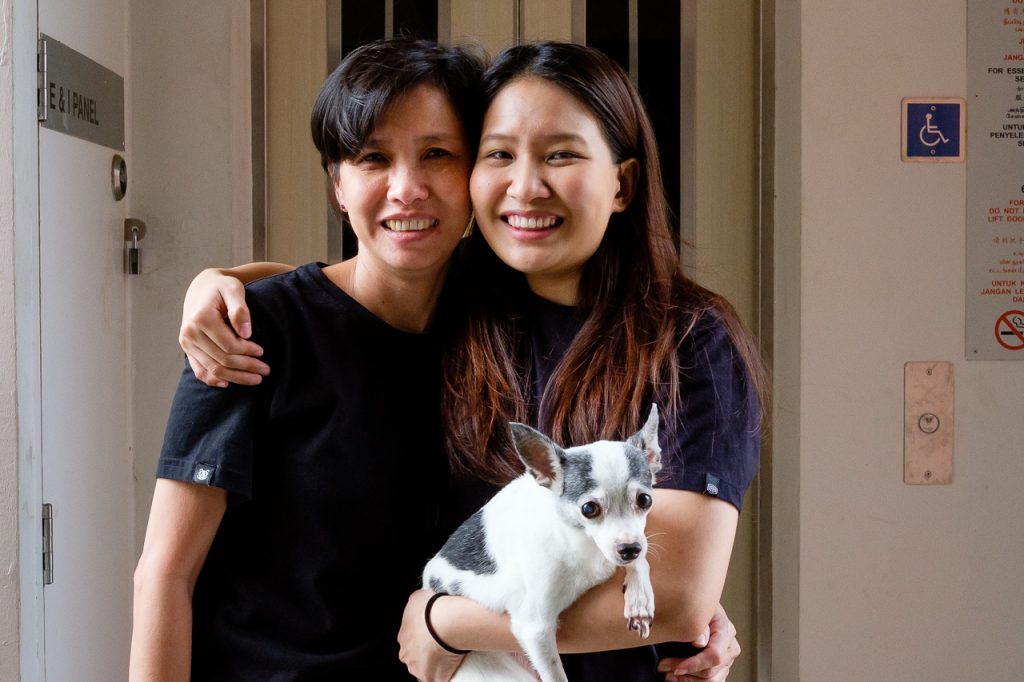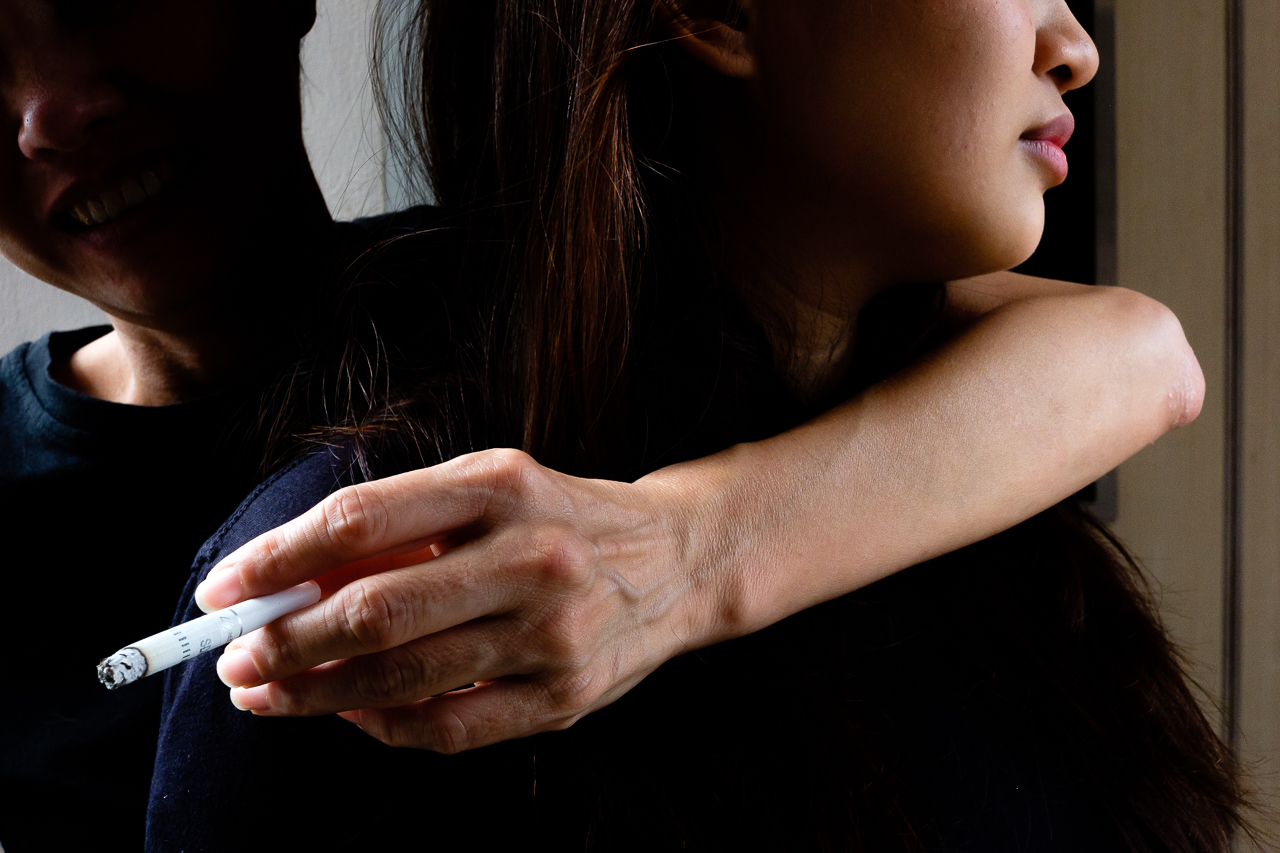A girl is jumping from one piece of furniture to another, playing ‘the floor is lava’. Nearby, her father is hidden behind an open newspaper, puffing on a cigarette and oblivious to her behaviour.
Nothing about this scene seems particularly suspicious or worrying, unless you count the fact that in this recount, this girl is 3 years old. Throw in the right music and cinematography, and you’d have all the trappings of the quintessential No-Smoking advertisement.
Any moment now, you might expect her to trip and fall, only for her father to continue smoking nonchalantly. Cue campaign slogan.
Did any of them want her to start smoking? Nope.
But did she start smoking? Of course.
She describes the days when she still used to work in F&B, and the joy that smoking used to bring her: “You start your day with a cigarette and a latte before banging out 14hr shifts 6 days a week behind the hot stove with your fellow comrades in the kitchen, who literally ride and die with you … then you step out into the fresh air for that 5 mins of smoke break. Or when you hang out with your friends with cold beers talking shit and smoking away pint after pint.”
“Little things man …” she sighs (since then, she’s quit smoking).
Yet this is just one smoker’s story. For everyone like Huan Ni, there is someone like 27-year-old Lauren Cheung, who represents the bulk of Singaporeans who’ve grown up around family members who smoke.
“In a nutshell, growing up with smokers turned me off smoking completely,” she shares, “Occasionally, I also think about what all this secondhand smoke must be doing to my lungs.”
She hated being in the house when they smoked, and grew up finding the smell of cigarette smoke both familiar and repulsive.
“When you’re exposed to the habit throughout childhood, there’s no longer any novelty or intrigue,” she goes on. “I just came to see smoking as a sort of irritating and cloying addiction.”

In fact, the closest comparison I can make is to body odour. There’s nothing inherently evil about it, yet it smells bad in a way that’s hard to rationalise; like a demon’s fart that sneaks up on you before invading your lungs and proceeding to release an atomic cloud of gaseous nausea from within.
It drives us to pass judgment on even the nicest of people so long as they reek.
This is compounded with the fact that our reactions are often motivated by socio-cultural reasons. As Huan Ni puts it, “People tell you it is a bad thing when you are growing up. Your parents, schools, advertisements.”
Unfortunately, not everyone takes on the pleasant, sexy kind of toasted tobacco smokiness when they have a cigarette. For some, the smoke combines with their sweat and their lack of hygiene to produce a cocktail of putrid funk, turning them into the ones who give all the other smokers out there a bad name.
Is it any surprise that when it then comes to empathising with smokers, few are generous with their compassion? To dismiss smokers as degenerate and view the habit as immoral has become instinctive for many Singaporeans.
“Smelling my dad’s cigarette smoke is a visceral reminder of one of the reasons why I grew up so against him, how he is, and his viewpoints.”
This is 24-year-old Daphne Teo, who goes on to explain: “It does feel like a lot of who I am is in opposition of who he is and that’s why I refuse to pick up smoking as that’s very much associated with him and I never want to be him in any shape or form.”

Frequently missing are those who occupy this unique space where they grew up around cigarettes, find it completely normal, understand why people do it, and yes, want their family members to quit—though often not for the reasons you think.
Rarely is it ever about the whole “you’re damaging your health!” narrative. Rather, it’s about smell and the way cigarette smoke affects us.
This quickly becomes clear in the way that Daphne describes her relationship with her father’s habit. She details how she hated that he would smoke in the kitchen, and eventually banished him to smoking outside the house. If they were out, she would insist that he walk behind everyone else if he was smoking.
One time, she says, “It was a nightmare that once I accompanied a friend to the school’s smoking corner. Felt like I was suffocating. Was terribly uncomfortable and sweating all over. Never doing that again.”
In any case, the whole thing about health hardly matters. As Lauren tells me, she quickly learnt that stressing the health concerns wasn’t an effective way to go about it.
“The closest I got to getting them to quite was telling them that the smoke was really affecting me, and that’s when they tried to smoke only when I wasn’t around.”

When asked if there’s anything pleasant at all that she associates with smoking, even Daphne has a story to share about this one time when she had to see her then-partner off at the airport.
“I was crushed, but his close friends offered me a smoke as a way to make me feel better in the moment. It did work but also because they were terribly supportive towards me about the whole thing.”
“We take smoke breaks with other smokers, share dirt, trade secrets and other things we don’t normally talk about,” Huan Ni adds.
Smoking doesn’t exist in a vacuum. Beyond a disgusting habit, it also gives us permission to do things we might otherwise not.
On top of all this, Lauren also explains that most people underestimate how difficult it really is to quit.
“Instead of shaming or expressing disappointment in people who aren’t able to quit the first couple of times, people could be more encouraging with their smoker friends and family members, and understand that it takes an average of thirty times to really shake the habit,” she says.
“I think that’s important to know.”

What this is, is a story about people. It’s about making the effort to understand the value of different experiences.
Huan Ni suggests, admittedly somewhat unreasonably, “If you’re standing around smokers, and the smoke is pissing you off, walk away.”
But what she says next is arguably more persuasive: “In my opinion, if the public holds a certain negative stigma towards smokers, then I think they should chill the fuck down cause they may be doing something really inconsiderate like hogging roads, not signalling when switching lanes, standing on the wrong side of the escalator …”
This is something you would never hear the average non-smoker say. For those of us who dislike smokers, there is only black and white. There is no grey area in which we may find ourselves taking a long hard look in the mirror before passing judgment.
This is perhaps the lesson here. Whether it’s cigarettes, alcohol, or toxic behaviour, the way to help others regulate their actions is never to condemn. “Just stop doing it” doesn’t ever work.
Rather, ask yourself, “How can I help them understand how this is affecting me? If they won’t stop doing what I want them to stop doing, how can I help them do a safer version of it?”
At the end of our conversation, Lauren suggests, “It seems far easier nowadays to understand why people smoke rather than why they don’t. I would say most people I know smoke and I completely understand why they do, and for reasons that seem extremely persuasive.
“Silly as it sounds,” she says, “There seems to be fewer and fewer reasons (to me) why I should continue to resolutely abstain from smoking.”
Call this what you want. But to me, it just sounds like empathy.






